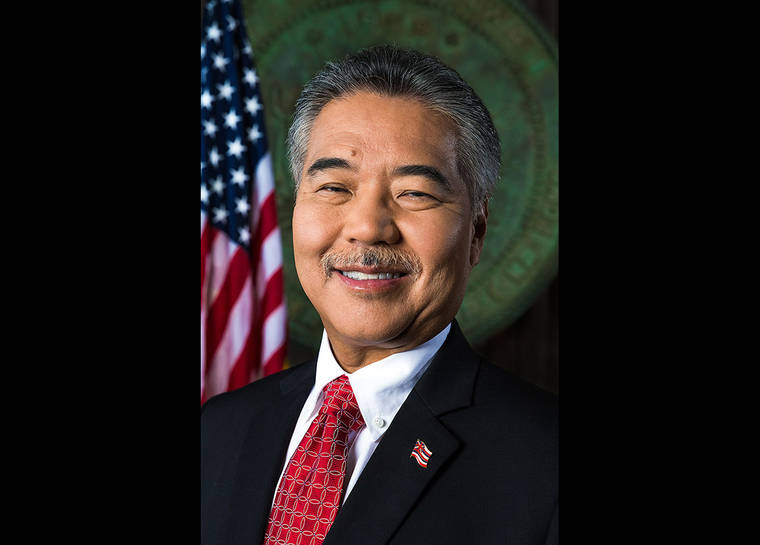Although there are still no confirmed cases of coronavirus infection in the state, officials believe it is only a matter of time before the epidemic reaches Hawaii.
At a news conference Wednesday, Gov. David Ige and other state administrators announced they will be switching the state’s response to the global COVID-19 outbreak from one of containment to one of mitigation.
State epidemiologist Sarah Park said the state is operating under the assumption that the virus will reach the state, if it hasn’t already.
The list of countries with confirmed cases of COVID-19 infection has continued to rise since the virus’ initial outbreak in the Hubei province of China. Earlier this week an outbreak of coronavirus in Italy spread to other European countries, while the number of cases in South Korea has swollen to the hundreds.
Although there there only 60 confirmed cases of the virus in the U.S., some municipalities, including the city of San Francisco, have declared states of emergency in response to the virus. However, Ige said such a course of action is unlikely in Hawaii.
“We certainly would be looking at it should it become necessary, but it’s definitely not adding anything at this time,” Ige said. “When I look at it, from my perspective, there’s not anything that we should be doing now that we can’t already do.”
Ige went on to say that he has requested $7.2 million in emergency funds from the state legislature to combat the disease, but said that sum is only an estimate made in anticipation of possible future expenditures by various state agencies.
For now, per guidelines from the Center for Disease Control, the only people being screened for the virus are those suffering from lower respiratory illness, have a fever and have visited mainland China in the last 14 days, Park said. Should any person meet those criteria, they will be categorized as a “person under investigation” and placed in quarantine, but that has not happened yet in Hawaii.
As the contagion spreads, those guidelines will most likely be updated, Park said, potentially to screen arrivals from more countries. However, she noted, at least 12 of the confirmed cases in the U.S. were not identified by such screenings, but through doctor visits.
Even before the updated CDC guidelines are released, Park said there are still ways to mitigate the likelihood of infection.
Park said the state is urging businesses to consider how best to limit face-to-face contact between colleagues and clients, and to allow sick workers to stay home to prevent possible transmissions of the virus.
On an individual level, people are urged to practice basic personal hygiene, washing hands often, sanitizing frequently used surfaces and keeping up to date on influenza immunizations — the latter of which may not prevent COVID-19 infection, but will prevent infection by the much more widespread flu virus.
“(The coronavirus) is not really a special virus,” Park said. “Regular sanitation, personal hygiene, workplace hygiene; those all go a long way in preventing not just this virus but, by the way, flu, which we’re still seeing plenty of in Hawaii.”
Park also reminded residents that surgical masks are very ineffective at protecting the wearer from infection and are instead intended to prevent the wearer from spreading their own pathogens.
Hilton Raethel, president of the Healthcare Association of Hawaii, said the state health system currently has “very adequate” supplies at its various facilities to handle an outbreak. However, as the disease spreads, breakdowns in the supply chain should be expected, he said: sick dockworkers will stay home, while some of the components for virus testing kits are produced in China.
While coronavirus testing is currently carried out in Hawaii by sending kits to labs on the mainland, Department of Health lab director Ed Desmond said the state may be able to conduct its own tests very soon, possibly even early next week, which will allow the state to improve diagnosis times.
Ige said he and his directors are still discussing what scenarios may require more drastic measures, such as when the state should close schools, or when a wider lockdown should be implemented.
However, Park suggested that school closures will more likely be implemented as a preventative measure: because the virus is contagious before it is symptomatic, closing a school after students have exhibited symptoms would be too late to actually limit the spread of the virus. Park also noted that documented child cases of COVID-19 are uncommon, which casts a spotlight on just how much is yet to be known about the virus.
“It’s hard to say where we’re at in this,” Park said. “Every epidemic is different. I hope in the next few months. … we’ll realize that we prepared more than we had to.”
Email Michael Brestovansky at mbrestovansky@hawaiitribune-herald.com.






